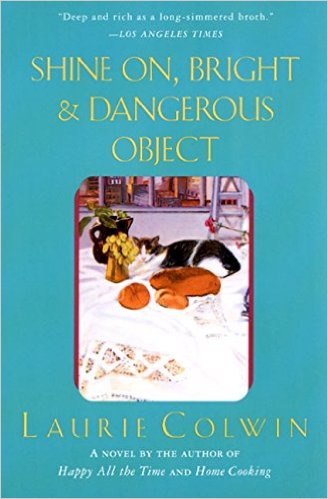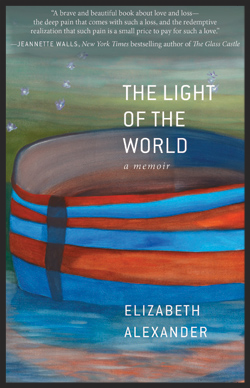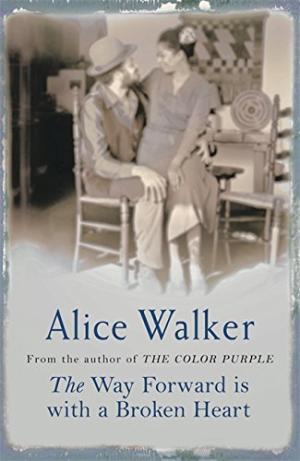 I have cried more in the first week of Donald Trump’s reign of terror than I did in all of 2016. And while I could give you the old razzle-dazzle about how every cloud has its silver lining – and in fact, I do believe that– I’d rather provide a list of books to make you feel less alone. Sometimes literary solidarity is even better than literary solace. Note this list is a tad controversial in terms of its omissions. (For example, no The Year of Magical Thinking, which I unfashionably regard as a valentine to ladylike dissociation that’s typical of author Joan Dideon.)
I have cried more in the first week of Donald Trump’s reign of terror than I did in all of 2016. And while I could give you the old razzle-dazzle about how every cloud has its silver lining – and in fact, I do believe that– I’d rather provide a list of books to make you feel less alone. Sometimes literary solidarity is even better than literary solace. Note this list is a tad controversial in terms of its omissions. (For example, no The Year of Magical Thinking, which I unfashionably regard as a valentine to ladylike dissociation that’s typical of author Joan Dideon.)
FICTION
Disturbances in the Field–Lynne Sharon Schwartz
A satisfyingly sprawling tome about a married pair of New York City artists whose children die in a bus accident, Lynne Sharon Schwartz’s Disturbances in the Field captures the unhappy specificity of grief with an unflinching eye and wonderful descriptions of food, sex, and 1980s Manhattan shimmer.
Shine On, Bright and Dangerous Object–Laurie Colwin
Food writer and novelist Laurie Colwin died unexpectedly of a brain aneurysm in her forties. Though technically she could not have anticipated the brevity of her life, this meticulously constructed novel about a twentysomething woman who loses her husband in a sailing accident suggests an eerie familiarity with the particular pain of an early demise. Like of all of Colwin’s books, it also conveys uncomfortable truths and irrevocable, rushing pleasures.
The Farewell Symphony—Edmund White
This barely fictionalized novel about how everything and everyone Edmund White loved in New York City was systemically destroyed by AIDS is not just the best book about the disease. The Farewell Symphony is also one of the best – and most under-sung – novels of the second half of the twentieth century. No one but White can write about the ecstasy and agony of a good one-night stand as if it were a Proustian madeleine, and no one but White can transform a cup of Darjeeling tea into a stunning time machine. Read this, please.
MEMOIR
 The Light of the World–Elizabeth Alexander
The Light of the World–Elizabeth Alexander
Artist, chef, and Eritrean activist Ficre Ghebreyesus died suddenly four days after his fiftieth birthday of an apparent heart attack. Though I never would have wished this shocking loss on his great love, poet and wife Elizabeth Alexander, her subsequent book is a stunning celebration of cross-cultural pollination, unconditional devotion, and wholehearted living. With it, she is not just healing herself; she is teaching us what healing really entails.
Let’s Take the Long Way Home: A Memoir of Friendship–Gail Caldwell
I was such a fan of the meticulous honesty of Caroline Knapp’s Drinking: A Love Story that when the author died I found myself longing for her take on the experience. Gail Caldwell, her closest pal and a Pulitzer Prize-winning journalist in her own right, took the reins instead, and it’s so good that I can imagine Knapp nodding vigorously over the latter woman’s shoulder. A catalog of their best-friendship and Knapp’s cancer, Let’s Take the Long Way Home offers a lovely candor that presents a new model of communing and dying with grace.
NONFICTION
 The Way Forward Is with a Broken Heart–Alice Walker
The Way Forward Is with a Broken Heart–Alice Walker
Sometimes I worry that Alice Walker is so gifted that people take her for granted like they do an Ella Fitzgerald song or a smoothly running subway system or, well, the color purple. Certainly I consider this collection of essays to be precious beyond measure even if it’s not touted as passionate as her fiction. In it, she delivers powerfully refined insights into the demise and delights of desire, marriage, friendship, and America itself, especially for people of color.
You Can Heal Your Heart–Louise Hay, David Kessler
For the most part, I’ve excluded self-help books here; though I consider many to be of great service, few put forth the literary satisfaction of other books on this list. But I greatly admire these series of conversations between Louise L. Hay, a renowned intuitive healer, and David Kessler, a protégé of On Death and Dying author Elisabeth Kubler-Ross. Detailing the emotions following a loss, the two discuss the difference between suffering and mourning, the surprisingly diverse forms of true healing, and tangible steps we may take to open our heart rather than shut down in the face of terrible pain.
This was originally published at Signature.
